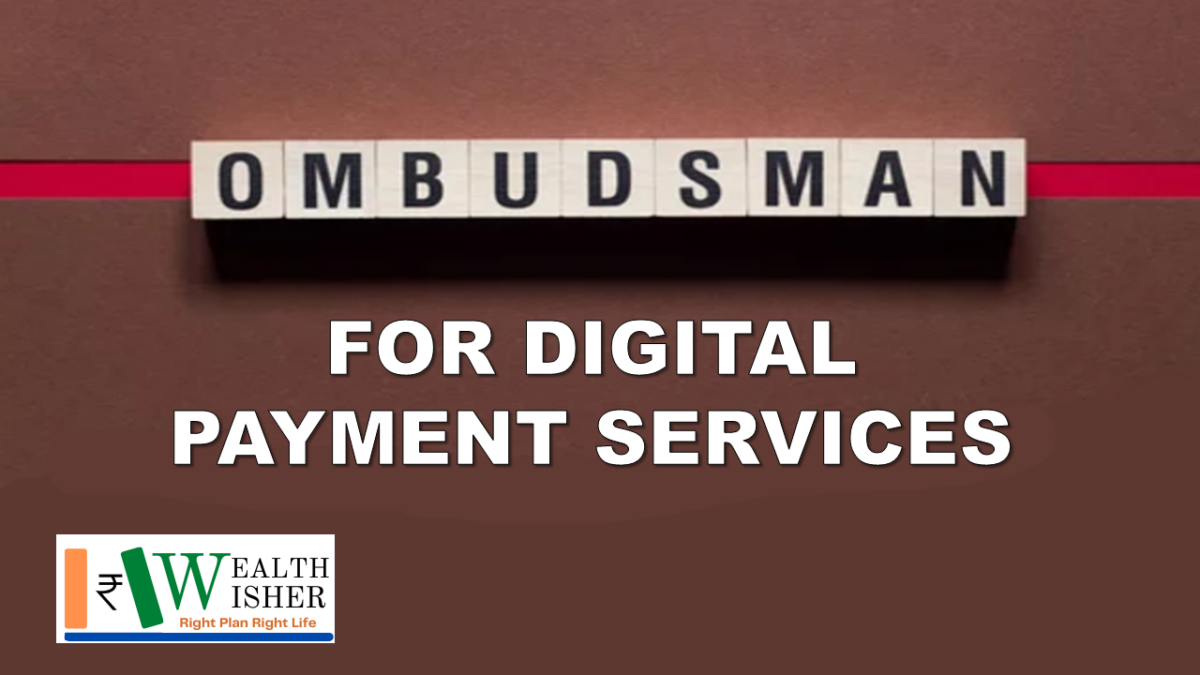The rapid adoption of digital payment services in India has revolutionized financial transactions. Recently, a report showed that Bangalore conducts 80% of its payments over digital payment mediums. From UPI (Unified Payments Interface) to mobile wallets and online banking, these services have made financial interactions seamless and efficient.
However, with this convenience comes the possibility of errors, disputes, and grievances, leading to the establishment of the Ombudsman for Digital Payment Services under the Reserve Bank of India (RBI).
This mechanism aims to protect consumers and ensure fair practices in digital payment services.
What Are Digital Payment Services? 
Digital payment services encompass platforms and tools that allow individuals and businesses to make financial transactions electronically without needing cash. These include:
- UPI (Unified Payments Interface): Facilitates instant fund transfers between bank accounts via mobile devices.
- Mobile Wallets: Apps like BHIM, Paytm, Google Pay, and PhonePe that allow users to store money digitally.
- Online Banking: Internet-based platforms provided by banks for fund transfers, bill payments, and more.
- Card Transactions: Payments made using debit or credit cards, both online and offline.
- Payment Gateways: Systems that enable secure online transactions for merchants and customers. For eg RazorPay or BharatPe.
What Can Go Wrong With Digital Payment Services?
While digital payment systems are designed for ease and s, several issues can arise, including:
- Transaction Failures: Situations where funds are debited but not credited to the recipient’s account.
- Unauthorized Transactions: Cases of for hacking resulting in unauthorized payments.
- Technical Glitches: Errors caused by system downtime, leading to delays or failed transactions.
- Incorrect Billing: Overcharging or incorrect deductions from a user’s account.
- Refund Delays: Prolonged delays in refunds for failed or canceled transactions.
- Service Denial: Instances where a service provider refuses to process a legitimate transaction.
Who Can File a Complaint?
The Ombudsman for Digital Payment Services is accessible to any individual, partnership, small enterprise, or lentity using digital payment platforms within India. Complaints can be filed by:
- Account Holders: Individuals with accounts linked to digital payment services.
- Non-Account Holders: People who use services like mobile wallets without a linked bank account.
- Merchants: Businesses facing issues with payment gateway services or other digital payment tools.
Filing a Complaint: The Process
The RBI has streamlined the complaint resolution process under the Ombudsman Scheme for Digital Payment Services. Here’s how users can file a complaint:
- Raise the Issue with the Service Provider
Before approaching the Ombudsman, the user must first lodge a complaint with the concerned digital payment service provider (e.g., bank, mobile wallet).
The service provider is required to resolve the grievance within 30 days of receiving the complaint.
- Approach the Ombudsman
If the issue remains unresolved or the user is dissatisfied with the resolution provided, they can escalate the matter to the Ombudsman.
Complaints can be filed via:
Online Portal: The RBI’s Complaint Management System (CMS) at cms.rbi.org.in.
Email/Postal Mail: Writing to the office of the Ombudsman in the region where the service provider is located. The ombudsman offices address and official contact details are available on the RBI website.
- Details to Provide
- Name, address, and contact details of the complainant.
- Nature and details of the complaint.
- Copies of correspondence with the service provider.
- Any supporting documents, such as transaction IDs, bank statements, or screenshots.
- Also, sufficient documents will have to be submitted. In case of insufficient documentary proofs for compensation, the process won’t go ahead.
Resolution of Complaints
The Ombudsman Scheme focuses on providing a cost-free, efficient, and impartial mechanism for resolving disputes. After receiving a complaint, the Ombudsman follows these steps:
- Preliminary Examination
Ensures the complaint falls within the scope of the scheme. Checks whether the complainant has already approached the service provider.
- Hearing Both Parties
The Ombudsman may call for written submissions or oral hearings from both the complainant and the service provider.
- Mediation
In many cases, the Ombudsman encourages mediation to resolve disputes amicably.
- Award Issuance
If mediation fails, the Ombudsman issues an award, which is binding on the service provider if the complainant accepts it within 30 days.
Again if customers are dissatisfied with the ombudsman’s decision, customers can approach the office of the deputy governor in charge of RBI’s department. In the last step, if all of the above fail and the resolution is not met to satisfaction, customers can file a case and approach the courts.
Benefits of the Ombudsman for Digital Payment Services
- Consumer Protection: Ensures users are not exploited or left without recourse.
- Accountability: Holds service providers responsible for lapses.
- Ease of Access: Provides an online mechanism, reducing the need for physical visits.
- Timely Resolution: Ensures complaints are resolved within a stipulated timeframe.
The Ombudsman for Digital Payment Services plays a pivotal role in addressing grievances arising from the rapidly expanding digital payment ecosystem in India. By offering a transparent, fair, and consumer-centric platform, it helps build trust in digital financial services. Users are encouraged to remain vigilant, report issues promptly, and leverage this mechanism to safeguard their interests.








